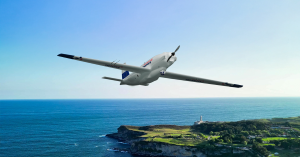This interview is part of The Recursive’s report on the state of defense, dual-use, and cybersecurity innovation in Central and Eastern Europe, available for download here.
How Presto Tech Horizons Is Backing Frontier Startups With Insider Access, Cross-Border Scale, and a €150M Bet on Resilience
Over the past five years, the world has been living through a continuous stress test: war on Europe’s borders, energy insecurity, a global pandemic, supply chain fragility, and rapid technological escalation. In times like these, innovation accelerates – not just for defense, but for resilience. From GPS to the internet, some of the most transformative technologies of the last century began as military tools. The same could be true today.
Presto Tech Horizons is betting on that future. Backed by venture firm Presto Ventures and industrial group Czechoslovak Group (CSG), the fund aims to invest €150 million in dual-use, defense, and security technologies from NATO countries and allies. Its thesis: investing in resilience tech is not just about protection – it’s about enabling breakthroughs across logistics, manufacturing, energy, healthcare, and beyond.
In this interview, Lucie Bresova, Partner at Presto Tech Horizons, breaks down why Central and Eastern Europe (CEE) can no longer be viewed as one market, how the venture landscape is becoming increasingly specialized, and what types of founders and technologies may define Europe’s strategic future.
You argue that CEE can no longer be viewed as a monolithic region, especially in defense innovation. What structural differences between countries like Poland, the Baltics, and the rest of CEE are most decisive for investors today?
Lucie: Yes, I’d push back on the idea of “one CEE market”. In defense tech, we actually see three distinct theatres, perhaps four. Poland is the scale play: it’s spending nearly 5% of GDP on defense next year and offers huge offset-driven opportunities for hardware and integration.
The Baltics are the speed play: tiny budgets but a digital-first culture, DIANA (Defence Innovation Accelerator for the North Atlantic) accelerator sites, and the highest startup density in Europe mean that founders can test with frontline units within months.
The rest of CEE is an optionality play, featuring good engineering talent and new initiatives such as the European Defence Fund (EDF) and DIANA hubs. However, procurement and capital markets are still catching up. Ukraine, of course, is in a league of its own.
Given that Presto Tech Horizons focuses on finding top talent globally rather than investing regionally, how do you assess and compare defense tech founders from the US, Israel, Western Europe, and CEE?
We screen founders on a five-axis scorecard: domain insight, tech moat, speed to first contract, capital leverage, and global compliance mindset. Each region has its own specifications, mostly driven by local culture.
First Presto Tech Horizons Investments
| Company | Description |
|---|---|
| Vidar Systems | A portable AI-driven acoustic localization system that can detect hostile battlefield attacks and protect strategic assets |
| Bavovna | AI-driven navigation system for uncrewed vehicles operating in environments threatened by electronic warfare |
| BlueQubit | QSaaS platform bridging quantum algorithms and practical applications in cryptography, pharma, and logistics |
| DiffuseDrive | GenAI platform creating realistic training data to improve vision AI for autonomous systems |
Your collaboration with Czechoslovak Group (CSG) signals a shift toward ‘competitive VC products’ in a maturing market. How do you envision specialized funds reshaping the resilience investment landscape?
We generally think of venture capital along two axes: global versus regional, and generalist versus specialist. That brings us to four distinct groups:
Global generalists like Sequoia, a16z, or SoftBank deploy billion-dollar pools everywhere. They hire defense partners, but resilience is just one of perhaps 20 themes they cover.
Regional generalists back everything in their home markets.
Regional specialists focus on a single sector in a specific country. Such funds exist and perform well in the US, but this model is challenging to implement and somewhat unrealistic in Europe.
Global specialists delve deeply into a narrow set of technologies but operate widely across borders. This model is winning in resilience tech because hardware, export controls, and sovereign buyers demand surgical expertise and global scale. That’s where Presto Tech Horizons really plays to its strengths.
It’s very difficult to become a Tier 1 global specialist if you don’t have a strong value proposition for startups and investors alike. I think there will be a wave of specialization across the VC landscape.
How does this model, with deep sector focus and cross-border reach, translate into concrete advantages for startups operating in resilience tech?
The partnership between Presto and CSG, one of Europe’s fastest-growing primes, is unique in the VC world. Our joint venture model gives startups something rare: the ability to scale with insider access. That includes asymmetric information, a streamlined path to government and commercial customers, and even exit opportunities.
We’re not just offering capital to our portfolio companies – we’re offering credibility, relationships, and a practical edge that’s essential in the defense space. That can be the difference between securing a first contract or being stuck in an endless pilot loop.
On the other side of the coin, how do we involve more investors in defense and resilience tech?
Defense and security industries come with high entry barriers. Most investors don’t have the time or positioning to maintain a regular presence at specialized industry events, limiting their access to high-quality deal flow. Without visibility and insider contacts, it’s difficult to uncover a strong pipeline of relevant startups. And even when they do, evaluating them is another challenge. Navigating regulatory and compliance requirements, especially for dual-use technologies, is complex. Investors rarely have the expert networks they’d need to assess technical and commercial viability in areas like satellite communications or advanced biotech…
Presto Tech Horizons was designed to help investors overcome these structural barriers. Through our partnership with CSG, we provide sector expertise, insider networks, and market access that most investors can’t build on their own. Deep tech in this space also tends to be capital-intensive. Early monetization and go-to-market require more than funding, you need infrastructure and processes. We combine financial resources with industry know-how and build a viable path for investors and entrepreneurs to operate effectively in this highly specialized domain.

What are some specific examples of resilience technologies that signal the direction of the sector?
It’s easy to associate defense tech with drones and armored vehicles. But resilience innovation is much broader, and increasingly applicable across civil domains.
Consider thermal satellite imaging, which supports both national security operations and environmental monitoring. Or industrial laser systems, essential for advanced manufacturing in aerospace and defense but also in shipbuilding, for example. Other technologies include visual navigation systems that enable autonomous movement in GPS-denied environments, acoustic wave systems that keep optical surfaces clear in harsh conditions, and AI tools for anomaly detection and prompt injection protection.
Each of these solutions addresses strategic challenges, but their impact extends far beyond the battlefield.
Where do you see the strongest overlaps between civilian space technologies and defense applications, and how important will dual-use potential be for future investments?
Space tech is a great example of a dual-use technology with many use cases. To highlight a few, I’d mention data from orbit, secure connectivity, and on-orbit manoeuvre and safety. Wherever those layers intersect, the same hardware can earn a civil invoice on Monday and a defense invoice on Friday.
Another important driver: AI. Really, the key element underpinning much of the future defense and resilience tech. We see it in most of the startups we meet and assess. And as an institutional investor, we’re focused on backing projects that will strengthen European resilience and tech sovereignty well beyond the end of the war in Ukraine.








